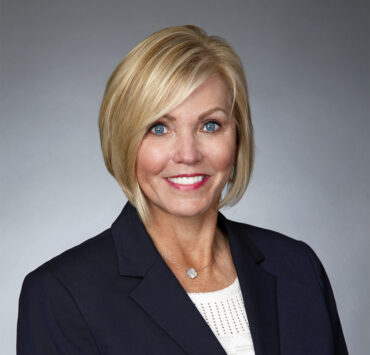Given all the current concerns about the global supply chain, it’s easy to forget that similar chains exist, albeit on a much smaller scale. Dealing with those channels is a daily challenge for Neil Stein, senior vice president of technology services, the PMO (project management office), and supply chain for OrthoCarolina, a physician-owned and physician-led independent academic orthopedic practice that provides operative and nonoperative care, diagnostic imaging, and rehabilitative therapy.
Decades ago, Stein was, as he puts it, a “bench-level scientist.” After earning a BA in chemistry from the Ramapo College of New Jersey, he found a job at Warner-Lambert working on the then-new cholesterol medication Lipitor. “The drug was on a fast-track for approval,” Stein recalls, “and I wanted to help speed the data analysis process with automation and computer tool sets.” He developed his own programs, entered the data, and let the system work around the clock.
Partly due to his efforts, the drug reached the market about six months earlier than anticipated; it generated a whopping $4.5 billion in sales during its first year of availability.
“Having the latest-and-greatest isn’t always necessary. It’s important that our investments make sense in the long run.”
Neil Stein
Stein soon transferred into full-time computer work at Warner-Lambert and joined Merck & Co. in 1999. During his tenure there, he assisted in the company’s global rollout of the open-source platform Apache Tomcat across more than three thousand servers. Stein followed his Merck tenure with several IT positions at Amerisource Bergen before joining OrthoCarolina in 2013.
Today, Stein’s chief concern centers on moving products from domestic warehouses into the hands of the 150 physicians (and staff) employed at OrthoCarolina. “I work with the director and the chain team to negotiate partnership deals with various suppliers to ensure that our clinics and centers get the products and technology they need to do their jobs,” he says. “At the same time, I must be concerned with securing competitive pricing.”
OrthoCarolina doesn’t have the scale to leverage massive purchasing power, so it capitalizes on the next-best thing—membership in a group purchasing organization. Even then, there’s a certain ebb and flow. “It’s the difference between staying locked into a particular vendor and being flexible enough to attain better care and better costs,” the SVP explains.
On the technology side, Neil Stein strives to keep things running smoothly. But he isn’t a fan of rushing to invest in latest-iteration hardware or software. “Having the latest-and-greatest isn’t always necessary,” he says. “It’s important that our investments make sense in the long run.
“In my view, the best tech is never noticed; it just does what it’s supposed to do.”
Neil Stein
“Our goal is to take strategic market risks for the future, in areas such as cybersecurity and organizational controls, to ensure that the organization is optimized,” Neil Stein adds. “For example, there’s been a bug push to move to the cloud, but we have to evaluate that in terms of our business model.”
Stein’s focus on flexibility extends to technology investments as well. “Right now, OrthoCarolina uses Office 365, which offers built-in cloud storage. We’re already paying the subscription fees, so it makes economic sense to use their cloud. But we’re also open to looking at smaller-sized partners,” Stein says.
He’s also a proponent of artificial intelligence and machine learning—but only as supplementary assets. “I’m in favor of automation for rote work,” he explains, “not to replace people but to make them more efficient.” He points out that assigning drudge work to machinery enables his team members to create added value by applying human insights and creativity where needed.
Stein’s efforts are driven not by a far-off board of directors but by the same people he sees every day: 112 of the 150 staff physicians at OrthoCarolina are also investors in the company. “In my view, the best tech is never noticed; it just does what it’s supposed to do,” he said. “It’s important that their days run smoothly, with no interruptions.”
“Our goal is to take strategic market risks for the future, in areas such as cybersecurity and organizational controls, to ensure that the organization is optimized.”
Neil Stein
His concerns include data security as well. “OrthoCarolina has about fifty clinics, and our physicians often travel among them. Because they carry HIPAA-regulated patient data and often e-prescribe narcotics, cybersecurity is essential to their jobs,” he says.
Regulatory compliance can be challenging, but Stein’s an old hand at folding it into the process. “When I was at Warner-Lambert, the company was under a consent decree, and we had to document absolutely everything—we used to say that if it wasn’t documented, it never happened,” he says. “Now, I educate everyone on my team about the necessity of routinely maintaining accurate records. By integrating, downstream activities are often streamlined.”
Stein’s leadership style involves plenty of give-and-take, but there’s no doubt as to who is in charge.
“I’m certainly no micromanager,” he says. “I give my team the right tools and advise them of guardrails so they can make the proper decisions. I want to build an army of people that will continue to grow even after I leave the company.”
At the same time, though, the buck stops with Neil Stein. “You can’t be wishy-washy in the business,” he emphasizes. “If my team can’t reach a decision, they know that I will. They also know the burdens of that decision rest with me, not them.”


